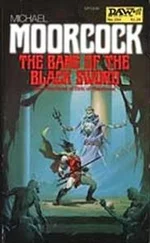D'Alaqua didn't answer, although he seemed to nod, ever so slightly.
"I know that you are a master of the Temple, that you see your mission as spiritual, and that you have made vows of chastity. Of poverty? No, from what I can see, not poverty. As for the Commandments, I know that you keep the ones that are convenient for you, and those that aren't… It's strange-I've always been impressed by certain men of the Church, and you in some way are one of them. Some of them think they can lie, steal, kill, but that those are all venial sins in comparison with the great mortal sin of… fornicating? If I use that word, it doesn't wound your sensibilities, right?"
"I would have come to you in the hospital, but I didn't think you would want to see me," he broke in. "I'm sorry for what has happened to you and Signor Valoni and for the loss of your friend Minerva and of your… of Pietro…"
'And what about the death of Ana Jimenez, buried alive? Are you sorry about that? Oh, God, I hope those deaths plague your conscience, that you never have another moment of rest. I know I can't do anything about you or your organization. I've just been told that, and they tried to buy me off by offering me the directorship of the Art Crimes Department. How little you people know human beings!"
"What do you want me to do? Tell me…"
"What can you do? Nothing-there's absolutely nothing you can do, because you can't raise the dead, can you? So maybe you can tell me whether I'm still on the list of the people to be disappeared by your organization, whether I'm going to have another of these lamentable traffic accidents, or maybe the elevator in my apartment building will fall. I'd like to know, so I can be sure no one will die with me next time, like Minerva did."
"Nothing will happen to you, I give my word."
'And you, what will you do? Go on as though what happened was just an accident, a 'necessary' accident?"
"If you must know, I am retiring. I am transferring power of attorney over my corporations to others, arranging my affairs so that the businesses can go on functioning without me."
Sofia felt a shiver. She loved and loathed this man at the same time, in equal parts.
"Does that mean you're leaving the Temple? Impossible-you're a master, one of the seven men who govern the Temple. You know too much, and men like you don't just walk away."
"I am not walking away. I have nothing and no one to walk away from. I am simply answering your question. I have decided to retire, dedicate myself to study, to helping society in other ways, different from the ways I am helping now."
'And your celibacy?"
Once more, D'Alaqua said nothing. He knew that she was devastated, wounded deep inside, and that he had nothing to offer her. He didn't know whether he would be able to go any further, finish rooting up what had for so long been the essence of his life.
"Sofia, I have been hurt too. There are wounds, painful wounds, that you can't see, but they are there. I swear that I am sorry for everything that has happened-what you have suffered, the loss of your friends, the disgrace that looms over you now. If it had been in my hands to prevent, I would have, but I am not the master of circumstances, and we human beings have free will. We all decide what we want to do in the play we live in-all of us, including Ana."
"No, that's not true. She didn't decide to die. She didn't want to die, and neither did Minerva or Pietro or the carabinieri or the men from the community, or even your own men, those friends of Padre Yves, or those others that nothing has been said about but who also died in the shoot-out, while others escaped. Who were your soldiers? The Temple's secret army? No-it's all right, I know you're not going to answer that; you can't, or, rather, you refuse to. You will be a Templar as long as you live, even though you say you're retiring."
'And what will you do?"
'Are you interested?"
"Yes, you know I'm interested. I want to know what you will be doing, where you will be, where I can find you."
"I know you did come to the hospital and stayed to watch over me a few nights."
'Answer me. What will you do?"
"Lisa, Mary Stuart's sister, found a place for me at the university. I'll be teaching, starting in September." She smiled thinly. "I'm planning to offer a course on the history, provenance, and cultural impact of certain esoteric artistic and religious objects, among other subjects."
"I'm glad," he said after a moment.
"Why?"
"Because I know you'll like it and be good at it."
They looked at each other for a long time, neither saying a word. There was nothing more to say. Sofia rose from her chair, and Umberto D'Alaqua accompanied her to the door. He took her hand in his and kissed it, holding it for a few seconds before he finally let it go.
She limped down the steps without looking back, but she felt D'Alaqua's eyes on her and knew that no one has any power over the past, that the past cannot be changed, that the present is a reflection of what we were, and that there is only a future if you never take a single step back.

JULIA NAVARRO is a well-known Madrid-based journalist and political analyst for Agencia OTR/Europa Press, as well as a correspondent for other prominent Spanish radio and television networks and print media. The English translation of her second novel, The Bible of Clay, will be published in 2008.
ANDREW HURLEY is best known for his translation of Jorge Luis Borges's Collected Fictions and Reinaldo Arenas's Pentagonia novels, among many other translated works of literature, criticism, history, and memoir. He lives and works in San Juan, Puerto Rico.
***















